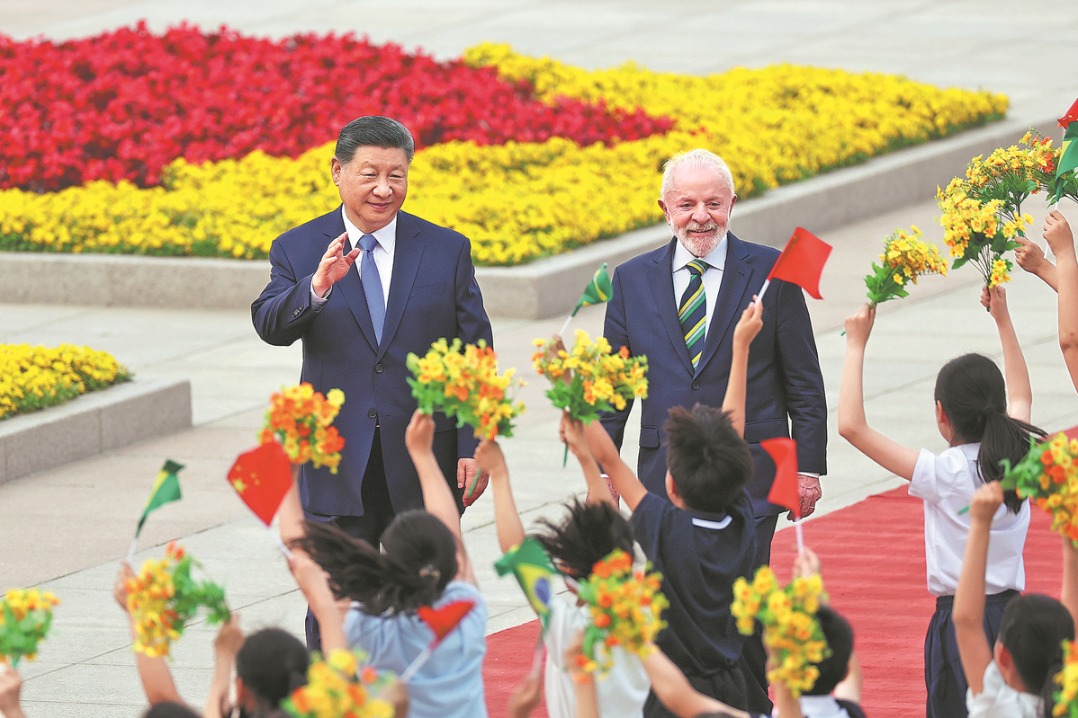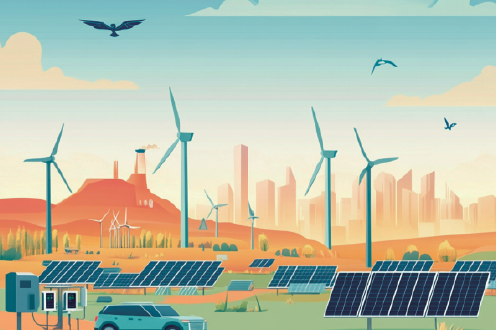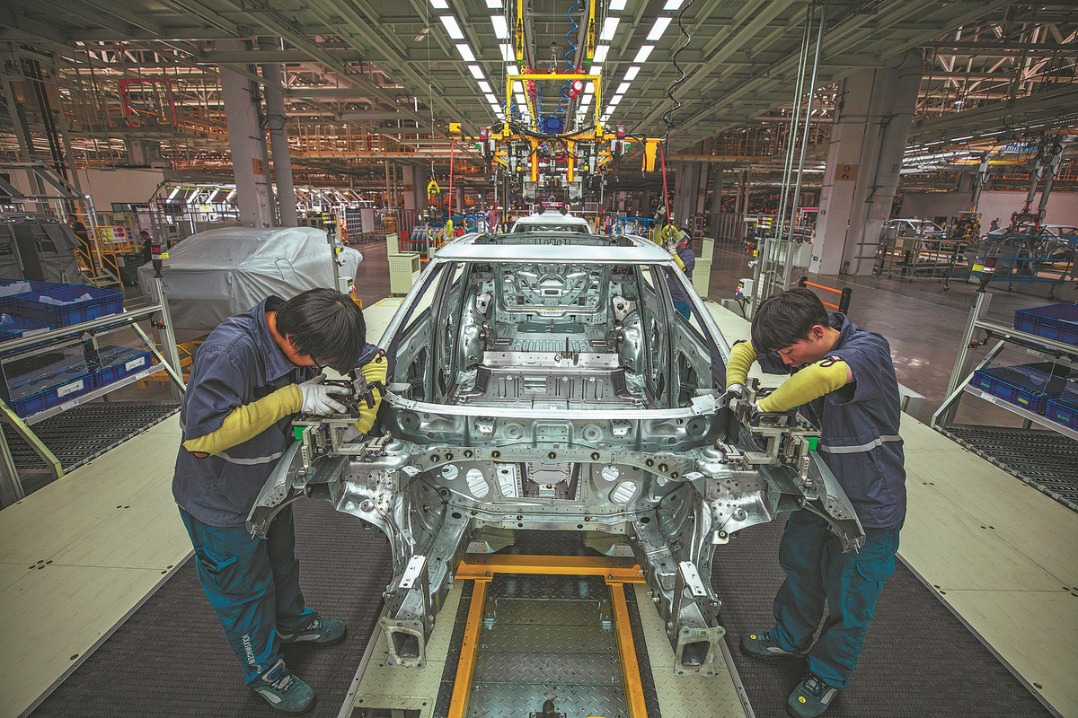Distant yet close friends back multilateralism


The fourth ministerial meeting of the China-Community of Latin American and Caribbean States Forum in Beijing on Tuesday marked the 10th year of a mechanism that has become central to relations between China and Latin American and the Caribbean countries. The gathering, reflecting a shared commitment to multilateral cooperation, South-South connectivity, and a fairer and more balanced world, can be seen as a refreshing change amid rising geopolitical tensions caused by certain big power's renewed unilateralism.
Established in 2014 during President Xi Jinping's visit to Latin America, the China-CELAC Forum is a multilateral platform aimed at strengthening relations between China and the 33 member states of the CELAC founded in 2010. The first ministerial meeting of the China-CELAC Forum was held in Beijing from January 8 to 9, 2015, marking the official launch of the forum. Rooted in mutual respect, non-intervention and common development, the forum emerged alongside China's efforts to deepen dialogue with the Global South and the CELAC's push for global integration independent of the US and Canada.
This year's forum was held at a particularly delicate geopolitical period, a period when White House has trade conflicts with China. Apart from targeting China, the administration views Latin America as a central arena in the competition between the US and China. In fact, the US has already increased pressure on the region's countries to reconsider their ties with Beijing.
This rhetoric reminds one of the Monroe Doctrine, issued in 1823 as a warning against European interference in the Americas, but has historically been used to justify the US' hegemony under the slogan "America for the Americans". In February, the US suggested "retaking" control of the Panama Canal, accusing China of "dominating" it. In doing so, it echoed Cold War-style narrative and reinforced the perception that the US treats Latin America as its backyard.
In contrast, China has positioned itself as a strategic partner to Latin America based on mutual respect, cooperation and a "win-win "approach. While US narratives often portray the region as a source of instability, by linking it to drug trafficking, migration and even terrorism, China offers investment in physical infrastructure vital to the region's sustainable development. A case in point is the Chinese-funded port of Chancay in Peru, designed to become a major logistics hub on the South Pacific coast and facilitate direct trade with Asia. Alongside seaports and railways, China is also helping build other infrastructure facilities, helping CELAC states to both better safeguard their sovereignty and boost the economic development.
No wonder more than 20 countries in the region have joined the China-proposed Belt and Road Initiative which is aimed at improving infrastructure connectivity and promoting common prosperity. At a press conference before the fourth ministerial meeting, China's Assistant Foreign Minister Miao Deyu said, "The peoples of Latin America and the Caribbean seek to build their own homeland, not serve as someone else's backyard." His statement reflects a nuanced understanding of a region marked by resistance to colonialism and foreign domination, an experience that China shares with other developing countries.
Within this broader dynamic, Brazil's participation carries particular weight. After former president Jair Bolsonaro withdrew Brazil from the CELAC, incumbent President Luiz Inácio Lula da Silva made Brazil rejoining the community one of his first international actions. His visit to Beijing with a large delegation of ministers, lawmakers and business leaders in April 2023 signaled Brazil's new foreign policy rooted in South-South cooperation. The goal: to diversify exports and attract investment for Brazil's re-industrialization, green energy development, and science and innovation promotion.
However, of late, some global developments, especially the US-China negotiations in Geneva, have raised concerns that China may accord priority to importing US agricultural products. In response, countries such as Brazil are deepening trade and economic ties, as well as intensifying their engagement with China, aside from seeking diversified partnerships.
This makes the China-CELAC Forum more than a technical platform; it is a platform that can help shape the future world order. The support of Latin American countries for international organizations like the United Nations and the World Trade Organization reflects their desire for fair, stable and less-asymmetric international rules. As Brazil's presidential adviser Celso Amorim recently said, the country's victories in WTO disputes — including over US cotton subsidies and EU barriers to sugar — were only possible through multilateral mechanisms.
By its 10th anniversary, the China-CELAC Forum has proven to be a strategic bridge between regions that not only trade but also share a common vision for a more inclusive, sovereign and multipolar world. In times of instability and rising unilateralism, the forum provides a tangible affirmation of an alternative, cooperative path forward.
The author is director of the BRICS Policy Center, a Brazil-based think tank, and a professor at the Institute of International Relations of PUC-Rio. The views don't necessarily reflect those of China Daily.
If you have a specific expertise, or would like to share your thought about our stories, then send us your writings at opinion@chinadaily.com.cn, and comment@chinadaily.com.cn.
































